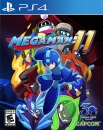Louie said:
IcaroRibeiro said:
Why are you guys keep this narrative that Switch is a portable when it's a hybrid. It's the hardware main selling point. Lite had exactly the same specs of Standard Switch and is 100 USD less expensive, if public was that earger for portable models Lite was supposed to be at least outselling the standard Switch
|
We are not claiming the Switch is a full-blown portable machine at all. Of course it is a hybrid. That's our point. The console being a hybrid (= can also be used as a portable) is a selling point of the Switch. If your claim was true that people moved to mobile, customers would think the Switch being a hybrid is a bad thing and would actively avoid the Switch because of this. In fact, that's exactly what many people argued before the Switch released: "It's a hybrid and people don't want to play portably because mobile gaming has killed dedicated handheld gaming. Therefore, the Switch is going to fail".
In reality, there was always huge demand for handheld gaming. It was just one Nintendo handheld that underperformed, the 3DS. It is absolutely impossible to draw from this the conclusion that mobile has killed dedicated handheld gaming. That's like saying "it rained yesterday, therefore the sun will never shine again". In reality the 3DS underperformed because of the usual reasons consoles fail: It was too expensive at launch for what it offered. It offered a gimmick (3D) people didn't like. And it lacked good games at first (the first really big 3DS game was Ocarina of Time 3D, a remake and months after launch).
The story that "mobile killed dedicated handhelds" was always wrong. Just like "the casualz now play on mobile!", which was always given as the reason the Wii U failed. In 2017/2018 people claimed Nintendo should concentrate on hardcore games to make the Switch successful because "the casuals have moved on". Fast forward to 2020 and - obviously - the Switch is selling like crazy because of games like Animal Crossing and Ring Fit Adventure, games that appeal to casual players and women.
Also, your example of Switch Lite sales does not fly: The Switch Lite is a less expensive version with less features. Of course it sells less than the main unit, you can't even play system sellers like Ring fit Adventure on the model! Software sells hardware! The real question is: How well would a home console only Switch sell? And the answer is: Very badly, because as a pure home console the Switch is not very attractive. Nintendo's success comes from owning the portable market right now.
Again, you are the one who claims mobile heavily affected dedicated handheld sales by using a sample size of one handheld (3DS) which obviously failed for other reasons. That's all the evidence you got. So the burden is on you to prove that handheld play is not a selling point of the Switch and that mobile has actually affected dedicated handhelds. Because if mobile truly had strongly affected dedicated handheld gaming, people would actively avoid the Switch as its mobility wouldn't be a selling point. In reality, the reverse is true: The Switch is selling because it is also a handheld.
|
I think I need to emphasize that I don't agree smartphone gaming killed handheld gaming, it's a stretch. I only agree mobile hurted traditional portable gaming by... a lot, and numbers don't lie:
DS + PSP sales = 233 million
3DS + Vita sales = 91 million
For Switch, breakdown is a little more complicated, I'm in a rush and can't find accurate data now, so be free to correct anything. Currently Standard-Lite sales ratio are 1:2. I'm sure this ratio will decrease, as this is the first year of Lite and Standard production was highly affected by covid, but I'll pretend nothing of this happened and Lite is going to sell half of standard Switch forever
Making a conservative 130 million life times sales prediction for Switch and keep in mind currently we have 52 million sales for standard and 9 for Lite, this will lead to a 45 million sales left/97 million total for standard and 23 million left/31 million total for Lite
By 2017, 20% of Switch owners mostly play docked, 30% mostly play handheld and 50% play both styles. I have no idea how this percentage looks like now, should be lesser for handheld players, as they now have Lite, but ok, let's bet it's still the same ratio. 30% of 97 million predicted sales from standard Switch is about 29 million sales.
29+31 million, will be the true size of handheld players on Switch ecosystem. Those would buy a handheld-only hardware if Switch hybrid never existed
19 million, are docked players. Those won't bother with handheld
And 48 million are buying because it's a hybrid. Some of us would by a handheld-only hardware, some wouldn't
The point is even if we add ALL 48 million hybrid players into handheld players group, it is still not even half of DS+PSP sales and as I said, not all of hybrid players would buy a dedicated handheld so it's a reach
Funny thing, 3DS+U numbers are very close to handheld only+docked only on Switch. Not saying those owners are all the same, but it shows how much hybrid aspect helps Switch sales
Either Switch alone sells 250 million or we have for 2 generations in row handheld market with half the size of what it used to be
But sure, it's more convenient believe a forgettable gimmick (3DS) was the reason for decrease in sales
There is a reason why games like Nintendogs, Brain Age and puzzle games aren't a thing on Switch. The Switch board game with a hundred or so games don't meet nowhere near this kind of sucess. Why? Because games like that, that were popular on DS can be perfectly replicated in mobile
Smartphones moved handheld gamers away from dedicated hardware. You can lie to themselves as much as you please, but in a market with steadily growth in pretty much all sub-markets having a single specific segment (portable dedicated hardware) that is decreasing is a clear sign of gamers moving away from this segment to another





















































